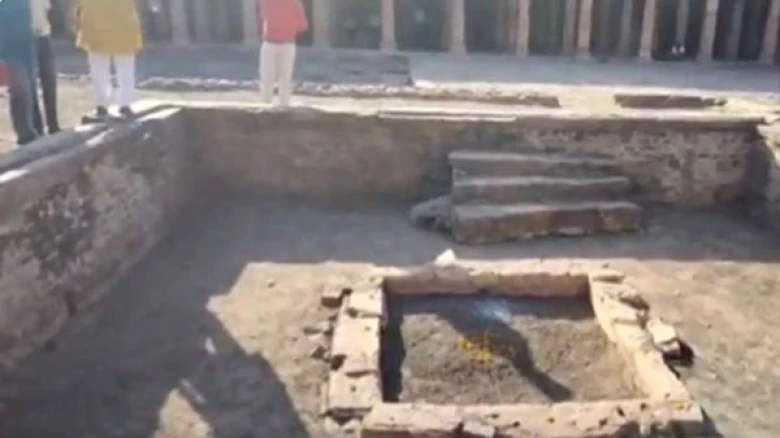Regional

The ASI-protected compound is home to one of the two prime female Goddess Vagdevi (Saraswati) for Hindus and Kamal Maula mosque for Muslims
Digital Desk: In the tribal-majority Dhar district of Madhya Pradesh, a team from the Archaeological Survey of India started surveying the Bhojshala temple/Kamal Maula mosque complex on Friday.
More than a dozen members of the ASI team arrived at the compound early in the morning, escorted by high-ranking police and district administration officials.
Before the namaz, the team worked until noon. On Saturday, the survey's second phase will take place.
“The survey has begun at the Bhojshala. We have provided all the logistical support that the ASI team needed to conduct it. Adequate security measures were taken for the exercise and there is peace in the town,” Senior police officer Manoj Kumar Singh quoted by IndiaToday.
The Madhya Pradesh High Court directed the ASI to conduct a "scientific survey" of the Bhojshala complex within six weeks of the court's order being issued on March 11.
Hindus are permitted to worship inside the Bhojshala complex every Tuesday, and Muslims are permitted to give namaz there on Fridays, according to an ASI decree of April 7, 2003.
In line with the directive of the High Court's Indore bench to carry out "archaeological survey/scientific investigation/excavation" of the site, ASI Additional Director General Alok Tripathi wrote to the Indore Divisional Commissioner, the Collector, and the Superintendent of Police of Dhar, pleading with them to grant safe access to the site.
The complex, the source of conflict between the two faiths, is a medieval-era landmark that Muslims refer to as "Kamal Maula Mosque," while Hindus refer to it as a temple dedicated to Goddess Vagdevi (Saraswati).
Hindus are allowed to pray inside the complex on Tuesdays, while Muslims are allowed to perform namaz there on Fridays, according to an ASI regulation of April 7, 2003.
Leave A Comment